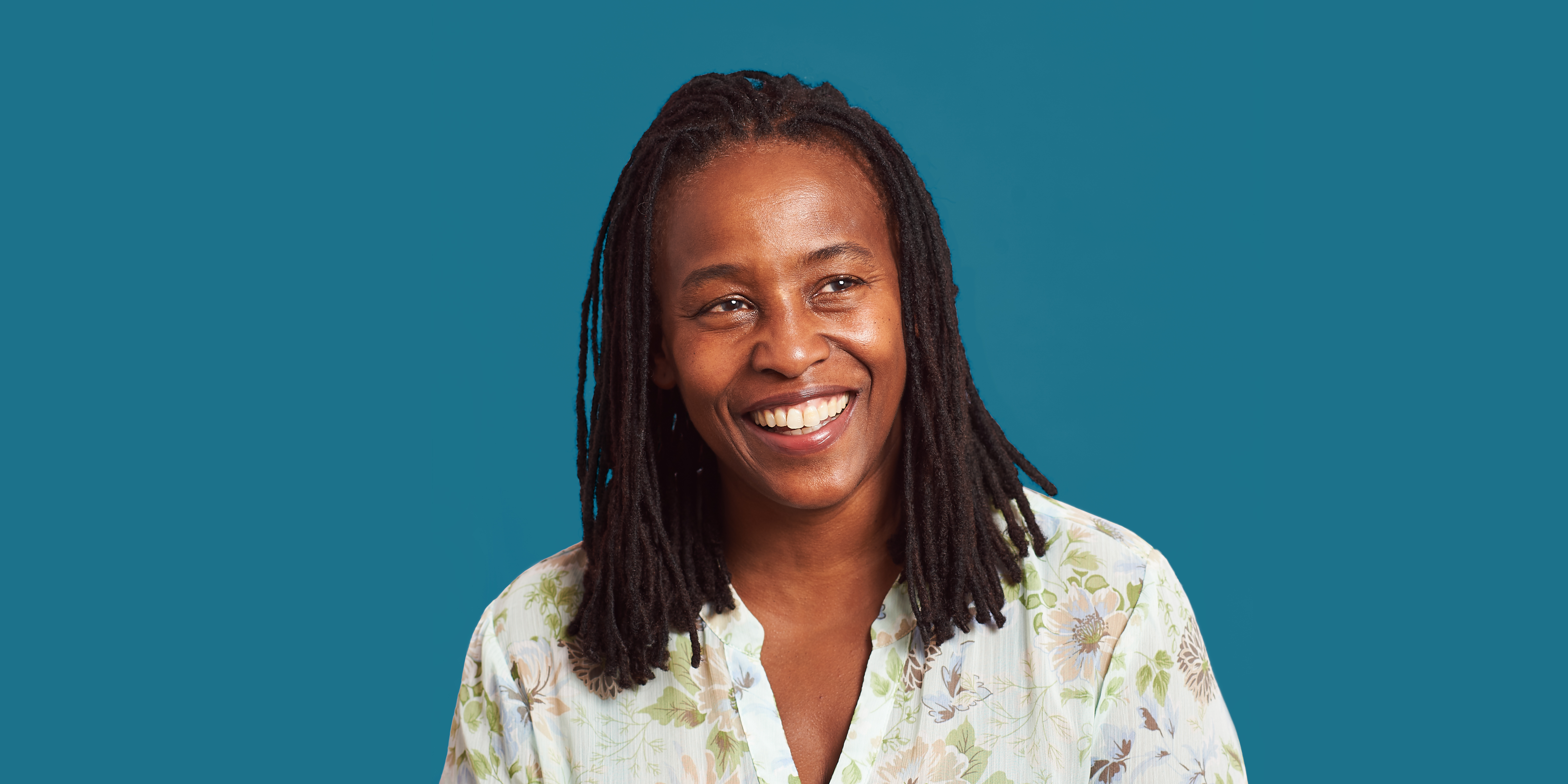
Stephanie Dinkins, an award-winning transmedia artist who creates experiences that spark dialog about race, gender, aging and our future histories, will present a lecture titled “On Love, Data and Technologies Rooted in Care” on Friday, Feb. 25 at 7 p.m. at the Mary Riepma Ross Media Arts Center.
The lecture is free and open to the public, but a reservation is required as space is limited. Visit https://go.unl.edu/dinkinsrsvp to reserve your ticket on eventbrite. The lecture will also be livestreamed at https://go.unl.edu/dinkinslivestream.
Dinkins will discuss the ways in which many algorithmic technologies are rooted in methods that limit and cajole information from the first human and computational assumptions. We assess ourselves using false dichotomies that force inadequate choices, building a world bereft of complexity and nuance. The disclinations of our systems to cope with the unseen, unknown, difference, and change limit possibilities for everyone.
Through intelligent technologies—the ones that look like us, the ones that serve us, and the ones that do neither—we have the ability to understand and organize human activity with complexity and broadly principled care. So, why aren’t these the goals of our algorithmic doppelgängers, assistance and technological ecosystems?
Often envisioned outside the realm of the technologically possible within artificial intelligence, care is an essential aspect of human information and resource-sharing networks that aid our survival. Recognition of this idea raises questions such as how can we infuse—cooperatively, adversarially, and fugitively—the ecosystems we depend on as well as the people and institutions that currently hold power with ways of being, values, ethics, and knowledges they are blind to or don't understand?
Dinkins’ lecture is presented by Bemis Center for Contemporary Arts in Omaha and the Johnny Carson Center for Emerging Media Arts at the University of Nebraska–Lincoln.
“The Carson Center is excited to partner with the Bemis Center to bring Stephanie Dinkins to Lincoln,” said Megan Elliott, founding director of the Carson Center. “Assistant Professor of Emerging Media Arts Robert Twomey hosted Stephanie as a key speaker for his SIGGRAPH Frontiers Workshop on Measurable Creative AI last August. We are eager to have our students, faculty and the community hear her speak and spark discussions on these important ethical technology issues.”
Dinkins’ work is on display as part of the exhibition “I don’t know you like that: The Bodywork of Hospitality” on view through March 20 at the Bemis Center and curated by Sylvie Fortin, Bemis Center 2019-2021 Curator-in-Residence. The group exhibition brings together the work of 18 international contemporary artists to explore corporeal hospitality.
The exhibition and its related public programs are supported, in part, by The Andy Warhol Foundation for the Visual Arts, Canada Council for the Arts, Conseil des arts et des lettres du Québec, Humanities Nebraska, Institut français-Paris, Nebraska Arts Council and Nebraska Cultural Endowment, Omaha Steaks, and UNO Medical Humanities/Ted Kooser Center for Health Humanities.
“We are thrilled to bring award-winning artist Stephanie Dinkins to Nebraska to share her work and ideas around technological futures,” said Chris Cook, Bemis Center for Contemporary Arts’ Executive Director. “For several years, Dinkins has been at the cutting edge of a movement to work with communities of color to create more equitable, values-grounded social and technological ecosystems. This aligns perfectly with the Bemis’s mission and aspirations.”
Cook said the Bemis Center is excited to partner with the Carson Center to welcome Dinkins.
“Such collaborations build on our mutual strengths and diverse missions; they contribute to our sustainability and center contemporary arts as they build community,” he said. “We look forward to continuing to expand our community collaborations, amplifying the crucial role of culture in the lives of all Nebraskans."
Dinkins teaches at Stony Brook University in New York, where she founded the Future Histories Studio and holds the Kusama Endowed Chair in Art. She exhibits and publicly advocates for inclusive AI (artificial intelligence) internationally at a broad spectrum of community, private and institutional venues.
Her practice has been generously supported by United States Artist, Knight Foundation, Berggruen Institute, Onassis Foundation, Stanford Institute for Human-Centered Artificial Intelligence, Creative Capital, Soros Foundation, Sundance New Frontiers Story Lab, Eyebeam, Pioneer Works, NEW INC., Nokia Bell Labs, Blue Mountain Center, The Laundromat Project, Santa Fe Art Institute and ArtOmi and her work has been featured in Wired, Art in America, Art21, Hyperallergic, the BBC and a host of popular podcasts.
For more information on Dinkins, visit her website at http://stephaniedinkins.com.
Currently, UNL no longer requires face masks inside our campus buildings, but we encourage masking indoors, especially if social distancing cannot be maintained. Details, exclusions and updates can be found on the UNL website at https://covid19.unl.edu.